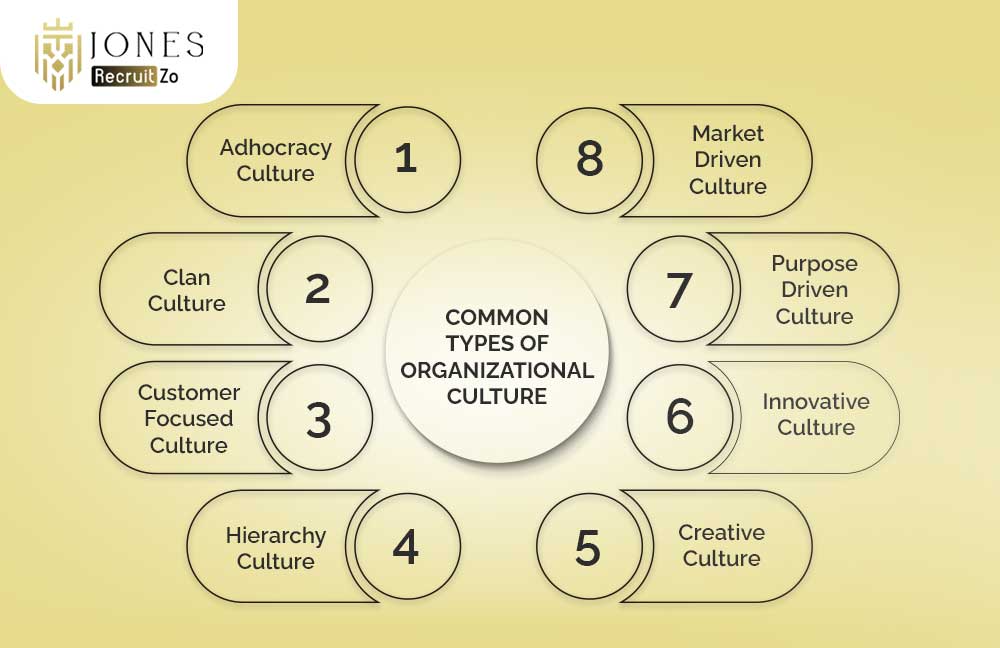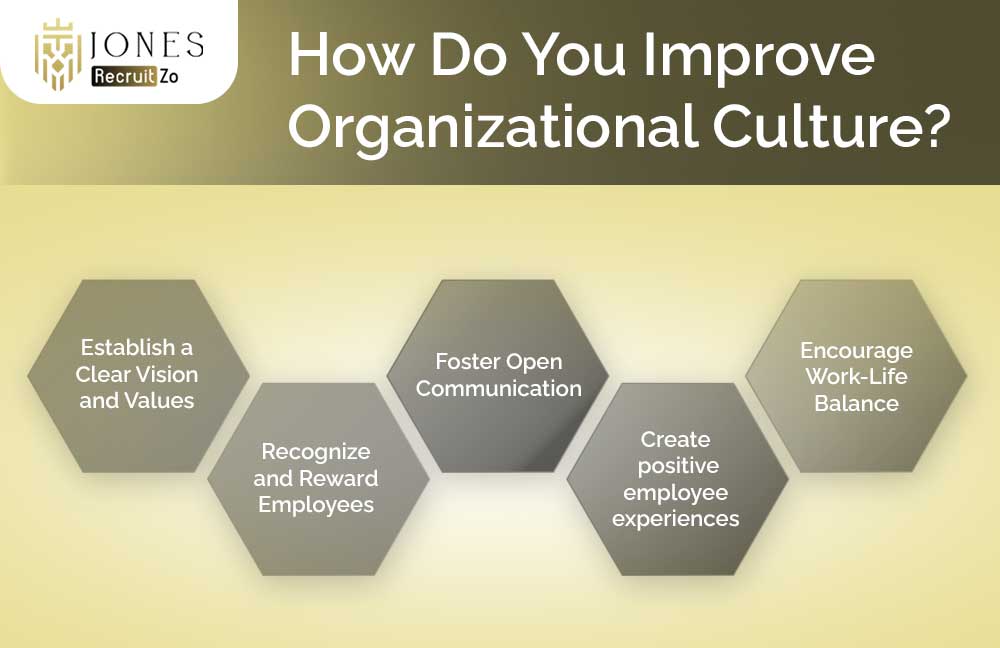What is Organisational Culture?
Organisational culture is far more than the shared values represented in the behaviours and attitudes that together define how work is done within a given organisation. It affects decision-making, communication, and the overall work environment, acting as a key determinant in whether a company is successful or fails.
Collaboration and energetic cooperation between the employees and the organisational goals used for achieving jobs set overall create one strong organisational culture. Organisational culture is the substance and epitome of an organization, which is composed of the values, beliefs and norms shared in dictating how to conduct oneself in the organisation.
It does give an extensive guideline about communication, decision-making, and behaviour at workplaces and thus influences both job satisfaction and overall performance of the people. The definition of organisational culture, therefore, may differ, but whatever foundation it may build, it should completely should speak to the making of a working environment that makes an employee feel a part of the institution’s mission and values.
Therefore, be it in leadership styles, policies, or team dynamics, the key lies with defining a harmonious organisational culture for long-term success.
Common types of organisational culture

Organisational cultures come in various forms, each tailored to a company’s priorities and goals. Understanding these types can help organisations identify and nurture the culture that best aligns with their values.
-
Adhocracy Culture
Adhocracy culture supports creativity and adaptability in innovative employees who would be encouraged to think out of the box and commence calculated risks. Creativity and flexibility are important for such learning organisations; they are usually seen pioneering in their own industries.
-
Clan Culture
Clan culture is about teamwork, camaraderie, and creating a family-like feeling at work, in which employees are actually being looked at, valued, and so loyal relationships only grow among them. It is most useful in such organisations where there is a high degree of employee commitment and mutual respect.
-
Customer-Focused Culture
Customer-orientated culture is when organisations ingrain exceeding customer expectations as their main focus. Customers will be encouraged to render better services in following the customer-first philosophy that will proceed with long-term benefits for the business.
-
Hierarchy Culture
It is a structure in which employees talk, arrange their discussions, and discuss their agreements. Such working situations will be habitually found in banking and production sectors.
-
Market-Driven Culture
A competition-driven culture displays that work is primarily production and stimulates results. It makes people strive against targets and drive revenue, which is good for a selling-orientated organisation.
-
Purpose-Driven Culture
It focuses on aligning individual company goals with the greater purpose or societal good. Subsequently, employees are elevated with a shared aspiration, resulting in higher involvement and commitment to the company vision.
-
Innovative Culture
It sets out a climate in which to encourage employees to develop an adventurous attitude and dare question the status quo; the new culture is quite common among disruptive start-up companies and tech giants who challenge traditional markets.
-
Creative Culture
Creative culture values originality and artistic expression, providing employees with the freedom to explore unique ideas. It is commonly found in industries like advertising, design, or entertainment, where creativity is essential to success.
Why is Organisational Culture Important?
Organisational culture plays a crucial role in shaping the workplace environment and influencing employee behaviour. A strong culture provides numerous benefits that contribute to a company’s overall success.
-
Enhances Teamwork and Collaboration
A well-defined culture promotes a sense of unity and trust among employees, making it easier for teams to collaborate effectively. It creates an environment where open communication and mutual respect drive productivity and innovation.
-
Helps to Retain Talent
Employee retention has been found to be higher in those who are in line with the culture and values the organisation holds important. Of course, in a positive culture, job satisfaction and loyalty are given a better sense of belonging, leading to reduced employee turnover.
-
Drives Employee Engagement
The culture of the organisation is directly related to the motivation of employees, which leads to the active participation of employees in the organisation. This can be seen as active participation in the company’s goal because such employees are motivated by the company’s mission.
-
Ensures effective onboarding
A company culture that is strong helps new employees to blend into the culture of the organisation easily. Therefore, this means teaching new recruits their welcome into the organisation more clearly within the backdrop of values and expectations, which, the organisation ensures, matches the alignment to that of the team.
-
Creates a healthy team environment
Culture plays a significant role in maintaining a supportive and respectful workplace. A healthy environment encourages employees to share ideas, address challenges, and support one another, fostering long-term success.
-
Decreases attrition
High attrition rates can be costly for organisations. A positive organisational culture reduces employee dissatisfaction, leading to lower turnover and a more stable workforce.
How do you improve organisational culture?

Improving organisational culture requires intentional efforts to align company practices with desired values and behaviours. Here are practical steps to enhance your workplace culture.
-
Establish a Clear Vision and Values
Lay down the organisation’s mission statements and principles. Tell the company people about all of them, thus that they become totally comprehensible to them, working fully in the interest of the company. A shared vision will create unity and a sense of purpose.
-
Recognise and Reward Employees
Acknowledging employee contributions is vital to maintaining a positive culture. Regularly recognising achievements, whether through awards or simple appreciation, boosts Employee morale and reinforces desired behaviours.
-
Foster Open Communication
Communication should be as open within all the levels of the organization. Open channels designed for feedback and discussion tend to promote an atmosphere of confidence since it let somebody feel that their voices are heard, which leads to realising and addressing concerns proactively concerning.
-
Create positive employee experiences
Build a work environment valuing not just the work but also the well-being of the employees, professional growth, and work-life balance. Train, develop, engage, and build more teams to encourage culture for employee engagement and value.
-
Encourage Work-Life Balance
Promote policies and practices that support work-life balance, such as flexible working hours or wellness programs. A balanced culture reduces burnout and helps employees perform at their best.
Organisational culture is the backbone of a thriving workplace. By understanding its importance and taking steps to cultivate a positive environment, companies can unlock the full potential of their workforce. Jones RecruitZo is committed to helping organisations build cultures that drive success and growth.
FAQs
1) What is organisational culture?
Organisational culture is the shared set of values, beliefs, and behaviours that define how employees work together and interact within a company. It influences the work environment, decision-making, and employee engagement, ultimately shaping a company’s identity and success.
2) What are the types of organisational culture?
The types of organisational culture include adhocracy culture, which focuses on innovation and adaptability, and clan culture, which emphasises teamwork and collaboration. Other types include customer-focused culture, which prioritises exceptional service; hierarchy culture, which values structure and formal processes; and market-driven culture, which is result-orientated. Additionally, purpose-driven culture aligns with a mission, while innovative and creative cultures encourage experimentation and originality.
3) Why is organisational culture important?
Organisational culture is important because it enhances teamwork, drives employee engagement, and helps retain talent. It also creates a positive work environment, ensures smooth onboarding of new employees, and reduces attrition, all of which contribute to an organisation’s success and sustainability.
4) What are the factors that shape an organisation’s culture?
The factors that shape organisational culture include leadership styles, communication practices, and company values. Employee behaviours and attitudes also play a significant role, along with external influences such as industry trends and societal expectations. These factors collectively determine the organisation’s work environment and overall identity.







